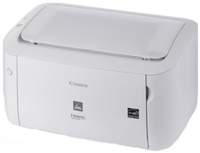
The Canon i-SENSYS LBP6020 printer boasts an impressive printing speed of 18 pages per minute (ppm) for monochrome prints, utilizing cutting-edge laser-beam print technology. Additionally, it yields an average print resolution of 600 x 600 dots per inch (dpi) and can reach up to 2400 x 600 dots per inch (dpi) with the aid of its automatic image refinement (AIR) component. This feature enhances the quality of the output to an optimum level.
Experience seamless printing with the Canon i-SENSYS LBP 6020. To ensure optimal performance, download the latest drivers for your Microsoft Windows 32-bit – 64-bit and Macintosh Operating System. With our driver downloads, you can unlock the full potential of your printer and enjoy high-quality prints every time. Don’t let outdated drivers hinder your productivity – stay ahead of the game with our state-of-the-art technology. Trust Canon to deliver unparalleled results and streamline your printing process. Get your Canon i-SENSYS LBP 6020 driver downloads now.
Toner Cartridge Details
725 Black Toner Cartridge – Approx 1600 Pages
Canon i-SENSYS LBP6020 Printer Driver Downloads
Driver for Windows
| Filename | Size | Download | |
| CAPT Printer Driver for Windows XP Vista 7 8 8.1 10 64 bit and 11.exe (Recommended) | 13.26 MB | ||
| CAPT Printer Driver for Windows XP Vista 7 8 8.1 and 10 32 bit.exe | 11.18 MB | ||
| Download Canon i-SENSYS LBP6020 driver from Canon Website | |||
Driver for Mac OS
| Filename | Size | Download | |
| CAPT Printer Driver and Utilities for Mac OS X 10.13 to 12.dmg | 33.33 MB | ||
| CAPT Printer Driver and Utilities for Mac OS X 10.7 to 10.12.dmg | 42.22 MB | ||
| CAPT Printer Driver and Utilities for Mac OS X 10.5 and 10.6.dmg | 40.67 MB | ||
| Download Canon i-SENSYS LBP6020 driver from Canon Website | |||
Driver for Linux
Linux (32-bit), Linux (64-bit)
| Filename | Size | Download | |
| CAPT Printer Driver for Linux | 121.61 MB | ||
| Download Canon i-SENSYS LBP6020 driver from Canon Website | |||
Specifications
The Canon i-SENSYS LBP6020 has a speedy warm-up time of only 0.5 seconds when in sleep mode, and a power on time of approximately 10 seconds or less. Ideal conditions allow for a first page out time of 7.8 seconds or less.
This machine boasts an impressive duty cycle of up to 5000 pages per month. Additionally, it supports a print margin of 5 mm on all four sides of the paper – top, bottom, right, and left. Check out the Canon i-SENSYS LBP6020 for all your printing needs.
The multipurpose tray of this device can accommodate up to 150 sheets of plain paper, making it a reliable choice for standard paper input. Additionally, the output tray is designed to hold up to 100 sheets of printed paper in a face-down orientation. This device can handle a variety of media types, including plain paper, heavy paper, transparent films, labels, and envelopes, which is ideal for a range of office applications.
Moreover, this device supports a wide range of media sizes, including legal, letter, envelopes, statement, executive, A4, A5, B5, and even some custom sizes. This versatile media handling capability makes it a valuable addition to any office setup, allowing for flexibility in document management and printing tasks.
With its robust paper input and output capabilities, as well as its broad range of supported media types and sizes, this device is an excellent choice for businesses looking to streamline their document management processes and improve productivity.
Related Printer :Canon i-SENSYS LBP3010 driver
The machine comes equipped with various features, including a power voltage range of 220 to 240 volts at 50/60 Hz. The power consumption of the device is dependent on the printer’s activity. At maximum usage, the machine can consume up to 910 watts or less. While actively printing, the usage drops to approximately 295 watts or less.
When in sleep mode, the machine has an average usage of about 0.8 watts or less. On the other hand, the standby mode consumes approximately 1.8 watts or less. These figures are significantly lower than those observed during printing, resulting in more energy-efficient operation.